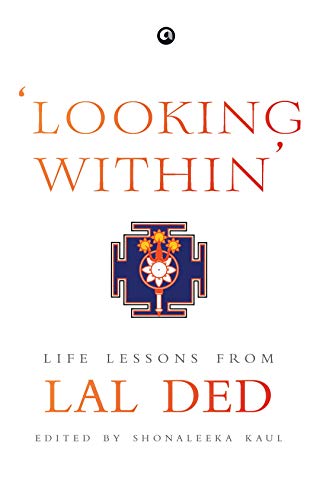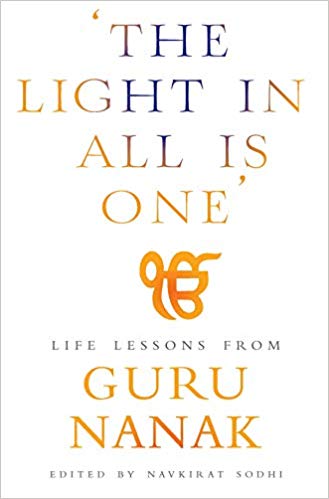India has produced some of the world’s greatest religious leaders, sages, saints, philosophers and spiritual thinkers. They were monks, nuns and renunciates, nationalists and reformers. No one religion had a monopoly on them. They range from Mahavira and Buddha, who lived over 2,500 years ago, to medieval saints like Chishti, Avvaiyar and Guru Nanak, to more recent philosophers and religious icons such as Vivekananda, Ramakrishna, Saint Teresa and many others. The spiritual and philosophical heritage they left behind is India’s gift to all Indians and the world.
In the ‘Life Lessons’ series we publish the essential teachings of some of India’s best-known spiritual teachers, along with commentaries and biographical notes.
Each of the following books will be a handy companion to help the reader along the difficult pathways of life.
‘Looking Within’
Lal Ded (Granny Lal), as Lalleshwari was known, was a Shaiva mystic saint who lived in
Kashmir, probably in the fourteenth century. Born into a Brahmin family of Pandrethan (near Srinagar), she is said to have had an early bad marriage and faced many domestic hardships, prompting a turn to spirituality. She renounced her marriage and material life and became a wandering mystic. She shared her wisdom in the form of vaakhs (sayings or utterances).
These vaakhs (originally in the Kashmiri language) have seeped far and wide into popular usage and are part of the collective memory—through songs, proverbs and hymns—of Kashmiris of all stripes, through the generations. In these vaakhs, Lal Ded talked about the woes of the human condition, her disillusionment with the world, her anguished search for God, and, ultimately, her realization of God as pure consciousness. She rejected outward rituals, ostentation and extreme asceticism as paths to reach the truth. Her observations on the transience and futility of material pursuits and the emotions they generate, like greed, anger, pride and fear, apply to us all. While her sayings are deeply profound, her humanism makes it easy to relate to Lal and her teachings.
Translated and edited by Shonaleeka Kaul, the aphorisms in ‘Looking Within’ represent Lal Ded’s core teachings.
Get the book here.
‘The Light In All Is One’
Guru Nanak was a sixteenth-century reformer and the founder of Sikhism. He was the first of the ten Sikh Gurus. He was born in Talwandi, near Lahore, during a time of political and religious discord and disharmony. Right from an early age, he displayed a deep knowledge of divine subjects and spirituality. He challenged ritualism and shows of piety and attacked the citadels of the caste system. He taught that the core tenets of living a good life were helping those less fortunate, making an honest living and meditating on the name of the Lord so as to overcome human weaknesses. He travelled extensively—from Mecca to the Himalayas to central India—with his faithful disciple Mardana, teaching about love, one God and Truth and oneness with the Lord. He propagated the philosophy of salvation through meditation and rejected all forms of idolatry. His travels have been chronicled in the Janamsakhis, written decades after his death. His teachings have been immortalized in the form of 974 verses that form part of the holy text of Sikhism, the Guru Granth Sahib.
Translated and edited by Navkirat Sodhi, the aphorisms in ‘The Light in All is One’ contain some of Guru Nanak’s greatest teachings. These wise lessons about living a fulfilling life are timeless and universal.
Get the title here.
‘You Are the Supreme Light’
Adi Shankara was one of the greatest philosophers of India. Probably born in the eighth century CE in modern Kerala, he established the doctrine of Advaita Vedanta and unified the six main schools of Hinduism. He travelled across the Indian subcontinent—from Kanyakumari in the south to Kashmir in the north and Dwarka in the west to Puri in the east—propagating his philosophy through debates and discourses, establishing monasteries and monastic orders. He participated in philosophical debates with orthodox schools of Hinduism and heterodox traditions. He established several mathas or monasteries, inspired by the ancient ashramas (hermitages), all over the country, which have ensured the continuity of his teachings. By the time he died at the age of thirty-two, he had produced a cornucopia of commentaries on ancient Indian texts as well as original philosophical works which contain some of the greatest gems of human thought on the concept of oneness with the Supreme Being, caste and equality, meditation, knowledge, self-realization, moksha, pride, attachment, maya and much more.
Edited by Nanditha Krishna, the aphorisms in ‘You Are the Supreme Light’ are culled from his greatest teachings and provide lessons on how to lead a fulfilling life. They are as relevant today as they were when Shankara first expounded his philosophy centuries ago.
Get the title here.
‘Be Present in Every Moment’
Moinuddin Hasan Chishti (1136–1235) was a beloved Sufi saint, philosopher and spiritual teacher who founded the famous Chishtiya order of Sufism in the subcontinent. Also known as the founder of the Sufi movement in India, Chishti introduced the syncretic element to Indian culture. He was the first Islamic mystic in India who encouraged the use of music as ‘sama’ along with prayers and meditation to establish communion with God. Due to his popularity with Hindus as well as Muslims, and the belief that he can help solve all problems, his shrine in Ajmer, Rajasthan, is visited by thousands every day. In his discourses Chishti preached about loving all our fellow creatures, irrespective of religion and status. His key teachings include charity and compassion for the poor and helpless, leading a pure life of devotion to the Divine, and achieving oneness with God in the service of his creations.
Edited by Babli Parveen, the teachings in ‘Be Present in Every Moment’ are simple, timeless lessons from Chishti that encourage one to live every moment of one’s life fully and selflessly.
Get the title here.
‘Live and Let Others Live’
Mahavira was a sixth-century reformer and philosopher, the twenty-fourth Tirthankara of
the Jains, who established Jainism as a new faith. Born into the royal family in Kundagrama(near Patna in present day Bihar), he renounced his family and all material possessions and became an ascetic at the age of thirty. Having attained omniscience (kevala jnana) after performing austerities for twelve years, Mahavira began travelling on foot, preaching and gaining followers. A great believer in the equality of all, he ordained men and women from all classes and castes. He taught his followers how to overthrow the fetters of karma and liberate the soul from the cycle of birth and rebirth as well as lessons on how to live a life of truthfulness, compassion, humility and non-attachment. The Upanishadic dictum—ahimsa paramo dharmah (non-violence is the greatest Truth)—saw its apogee in the teachings of Mahavira. His teachings on the symbiosis between all living beings and the five elements— earth, air, fire, water and vegetation—form the basis of environmental sciences today.
Edited by Nanditha Krishna, the aphorisms in ‘Live and Let Others Live’ contain the core
teachings of Mahavira that show us how to lead a peaceful and fulfilling life.
Get the title here.


